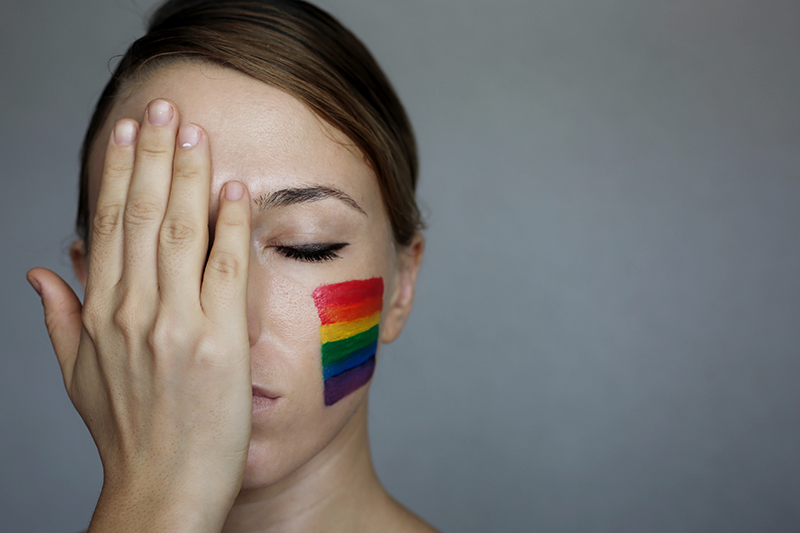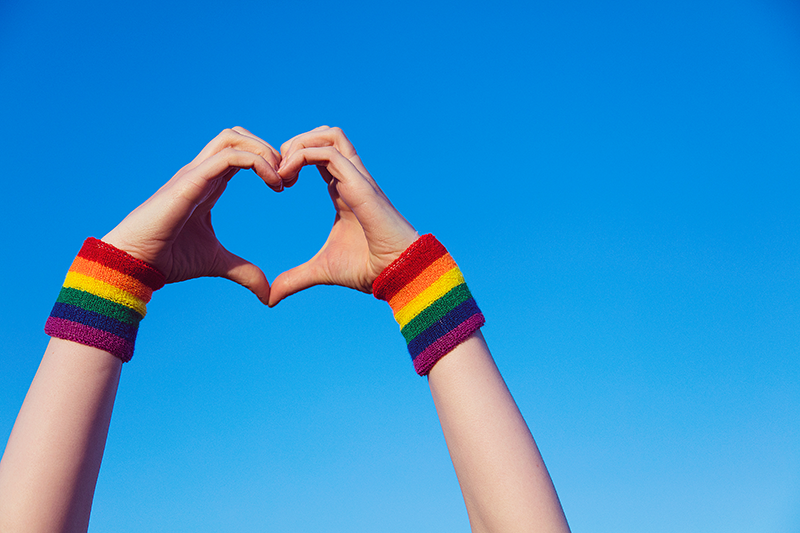No, people who come out as LGBTQ+ aren't 'sayang' and it's high time to stop saying that
There are a lot of things you can say to an LGBTQ+ identifying person who comes out to you—"sayang" shouldn't be one of them.
Personally, I did not experience getting told "sayang ka" when I came out to my friends, but it's the main reason I haven't come out to my family. Whenever I'd hear conversations amongst lolas and titas about someone they know who is gay, the s-word gets thrown around a lot and they give a few reasons for it.
One of the things that come up is that a queer person is "sayang" because they're too pretty or handsome to be gay. I hear this a lot when a celebrity comes out of the closet. But being gay doesn't put anything to waste, even looks.
It's also like people expect a gay person to look a certain way. With frames of reference for LGBTQ+ limited to what they see on TV, they think gay people are all effeminate, flamboyant men and lesbians are all short-haired, butch women. We shouldn't perpetuate these boxed ideas as people in the LGBTQ+ community come in different shapes and sizes. There is such a thing called gender expression, or how people express their gender outwardly—whether that's through wearing clothes or speaking in a manner traditionally aligned with their sex assigned at birth or not.
Besides, queer people are all beautiful. Effeminate men are beautiful, masculine women are beautiful, androgynous people are beautiful, and trans people are beautiful. Going against the grain does not make them less.

Some people also think about how LGBTQ+ people won't really have their own families because they won't be able to have kids. However, there are many ways for queer people to become parents like through adoption, foster care, surrogacy, and more. Just because they didn't bear children in the traditional sense doesn't mean they're not a real family. They might not be able to pass on their genes but LGBTQ+ parents can share their love and values with their children.
Unfortunately, because same-sex marriages and same-sex civil unions have yet to be recognized in the Philippines, same-sex couples aren't recognized as legal parents of an adopted child. Only one of them can be recognized by the law, leaving the other with no parental rights over their child.
And because society looks down on queerness like it's a downfall, they tend to also discredit an LGBTQ+ individual's achievements. "Honor student siya, doctor siya, pero bakla."
On the other end of the rope, you have people finding these attainments as the queer person's saving grace. "Bakla siya pero buti nalang lawyer siya."
These sentiments cause some members of the LGBTQ+ community to strive harder for excellence to make up for the fact that they are not straight to their families or peers. And don't get me wrong, I'm not saying gay people should stop killing it in different fields, it's just that it seems like no matter what we do, people will always try to find a fault to invalidate our wins.
But this dilemma of compensating for their SOGIE may add on more stress than what they're dealing with and affect their mental health. Research shows that LGBTQ+ persons are more vulnerable to conditions like depression and anxieties. LGB adults are twice as likely to experience a mental health condition than heterosexual adults, while transgender individuals are nearly four times as likely.

Next steps
Let us be. It's high time for statements like "sayang" to be buried six feet under. Being part of the LGBTQ+ community shouldn't be seen as such a negative thing. There's nothing wrong with being gay. Queer people bring a lot to the table—skills, ideas, creativity—and words like these only bring harm.
The best thing to do is to educate yourself about the community so you don't come up with ignorant comments. Learning more about the community will help you better support your family/friend who came out to you and give you a glimpse into their world.

A person doesn't change when they come out to you—they are still the person you know and love. Everybody wants to be treated with love and kindness and LGBTQ+ persons are the same.


